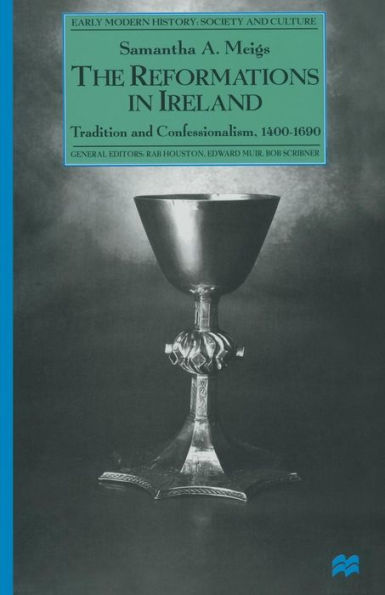Home
1916: Ireland's Revolutionary Tradition
Barnes and Noble
1916: Ireland's Revolutionary Tradition
Current price: $25.95


Barnes and Noble
1916: Ireland's Revolutionary Tradition
Current price: $25.95
Size: Paperback
Loading Inventory...
*Product information may vary - to confirm product availability, pricing, shipping and return information please contact Barnes and Noble
The Easter Rising of 1916, in which just over a thousand Irish rebels seized key locations in Dublin and proclaimed the independence of the Irish Republic before being brutally suppressed by the vastly larger and better-equipped British Army, is an event whose meaning remains contested to this day. For some it represents a blood sacrifice without the hopeor even the intentionof success. For others, it was the first act in a tumultuous political drama played out in Dublin streets and London cabinet rooms that led to the eventual formation of an independent Irish state. In
1916
, Kieran Allen argues that this pivotal moment in Irish history has been obscured by those who see it only as a prelude for a war of independence. Emphasizing an often ignored social and political radicalism at the heart of the rebellion, he shows that it gave birth to a revolutionary tradition that continues to haunt the Irish elite. Socialist aspirations mixed, and sometimes clashed, with the republican current, but both were crushed in a counterrevolution that accompanied the Anglo-Irish treaty of 1921. The result today is a partitioned Ireland that acts as a neoliberal tax haven for multinational corporationsa state of affairs quite alien to both Connolly’s and Pearse’s vision. Published to coincide with the Rising’s centennial,
1916: Ireland’s Revolutionary Tradition
re-establishes the political role of socialist republican figures, offers a highly accessible history of the Easter Rising, and explores the militancy and radicalism that continues to haunt the Irish elite one hundred years later.
1916
, Kieran Allen argues that this pivotal moment in Irish history has been obscured by those who see it only as a prelude for a war of independence. Emphasizing an often ignored social and political radicalism at the heart of the rebellion, he shows that it gave birth to a revolutionary tradition that continues to haunt the Irish elite. Socialist aspirations mixed, and sometimes clashed, with the republican current, but both were crushed in a counterrevolution that accompanied the Anglo-Irish treaty of 1921. The result today is a partitioned Ireland that acts as a neoliberal tax haven for multinational corporationsa state of affairs quite alien to both Connolly’s and Pearse’s vision. Published to coincide with the Rising’s centennial,
1916: Ireland’s Revolutionary Tradition
re-establishes the political role of socialist republican figures, offers a highly accessible history of the Easter Rising, and explores the militancy and radicalism that continues to haunt the Irish elite one hundred years later.


















